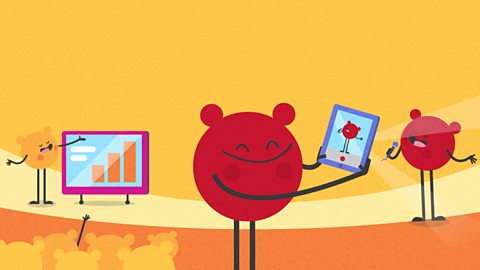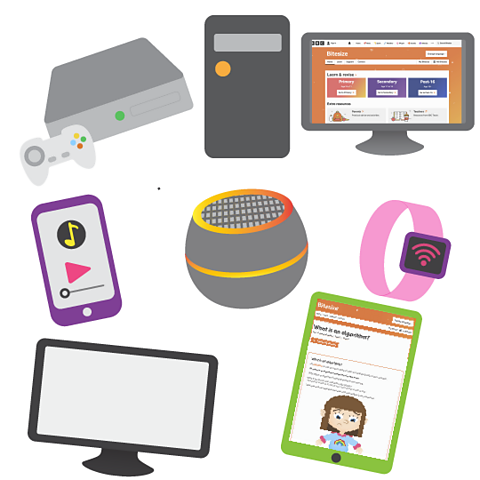
Using computers and digital devices
Computers and digital devices are everywhere!
We use them for all kinds of different activities at home, at school and in the world around us.
A digital device is something with a computer inside it, like:
- a tablet
- a smart TV
- a smartwatch
- a smartphone
- a games console

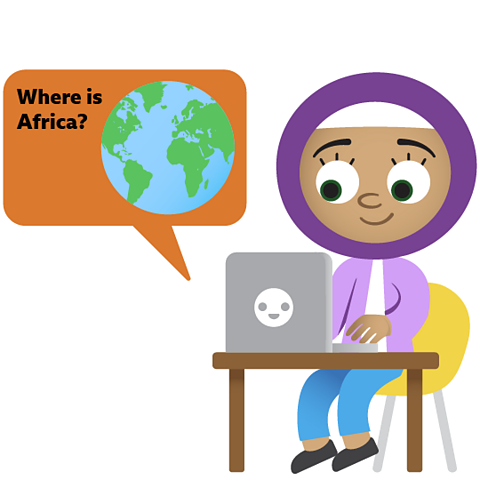
Going online
Many of the digital devices we use are connected to the internet. This means they can share information with lots of other computers and digital devices around the world.
When we are connected to the internet, we say we are online. When we are online we can:
- search for information
- play online games
- watch videos
- shop online
- send messages and share photos with friends
We usually see and do things online by visiting a website. A website is a bit like an online book made from webpages.
Going online can be lots of fun!

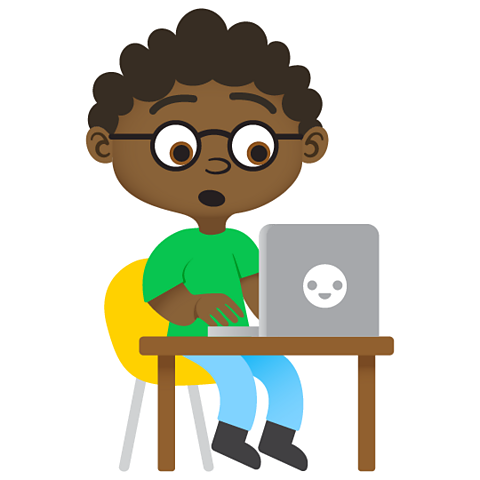
What can go wrong when we go online?
Although we can have fun online, we can sometimes see things on a website or in an online game that makes us feel scared, sad or uncomfortable.
We may get stuck when a website or game goes wrong, or we might end up on a different website by accident.
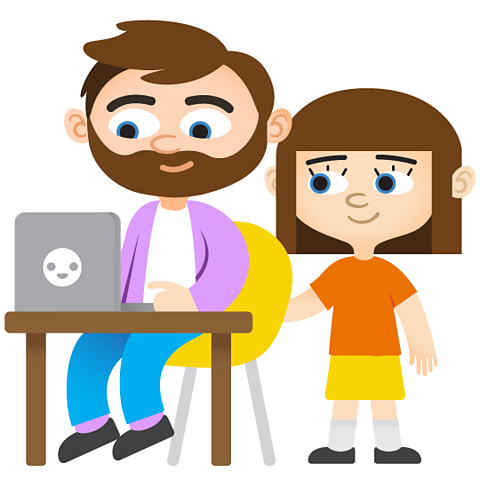
How can we get help going online?
It's best to always ask a trusted adult before we go online.
They can help us find the games and activities that are made for children and that we can enjoy safely.
Trusting someone means that you know they will look after you and keep you safe.
A trusted adult might be a family member. It could also be an adult who works at your school like a teacher.
We shouldn't use a digital device to go online by ourselves, or with other children, without a trusted adult to help.

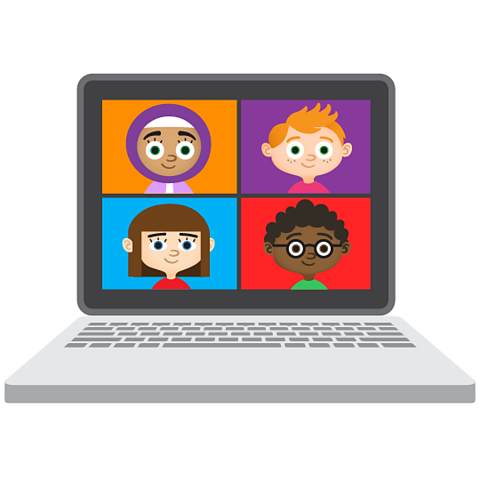
Meeting other people online
We often meet other people when we are using a digital device. We might be chatting to a friend on the phone or sharing a picture or video with a family member.
We also might meet people we don't know.
We should never talk to a stranger when we are online, even if they know our name and are being friendly.
If someone tries to talk to us online we should tell a trusted adult straight away. Not everyone we meet will be friendly or kind.
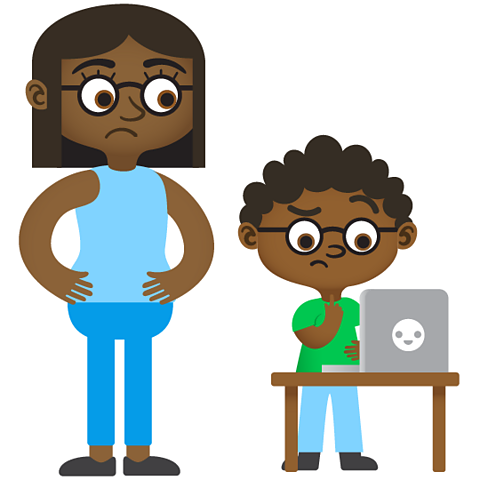
What to do if things stop being fun
If you see something on the screen that frightens or upsets you, then you can:
- turn the screen or device over
- close the app using the home button or power switch
- go and talk to a trusted adult straight away
Explain what you saw and let the adult look at the website or game if you can. This will help them to keep you safe.
Having fun and staying safe online is easy, if you remember to always ask a trusted adult.

Glossary
Here are the meanings of some important words:
Computer – A device that can follow instructions stored in its memory.
Digital device – A machine that has a computer inside.
Screen – A device that shows pictures, text, videos and animations.
Internet – A giant network of computers connected across the world.
Online – Connected to the internet.
Webpage – An online page of information with words, pictures, video and sound that we see on a screen.
Website – A collection of connected webpages.
Private – Sharing something with only a small trusted group of people.
Personal information – Information that could be used to identify someone.
Username – A nickname used to login to a game, app or account.
Password – A secret series of letters, numbers and symbols used to keep an account private.
Trusted adult – An adult that you know and will keep you safe.
Online safety activities
Play Bitesize Primary games. game
Fun and educational primary games in science, maths, English, history, geography, art and design, computing and modern languages.

More on Digital citizenship
Find out more by working through a topic
- count1 of 7
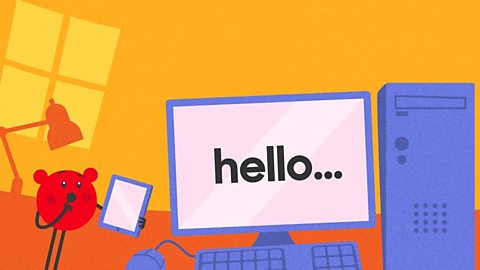
- count2 of 7
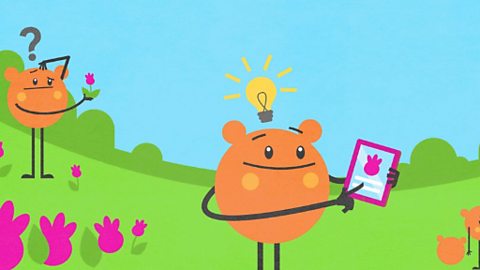
- count3 of 7
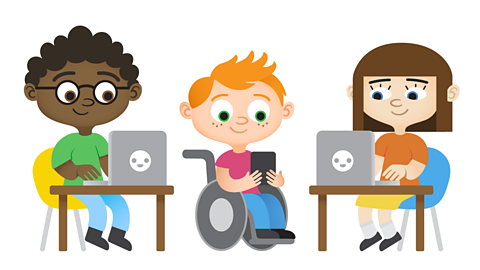
- count4 of 7
